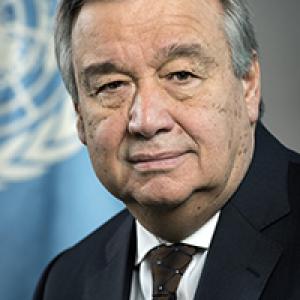But we now face a powerful pushback. Legal protections against rape and domestic abuse are being diluted in some countries; women’s sexual and reproductive rights are under threat.
All this is because gender equality is fundamentally a question of power. Centuries of discrimination and deep-rooted patriarchy have created a yawning gender power gap in our economies, our political systems, our corporations and our culture.
This profoundly affects us all and is a barrier to solving many of the challenges and threats we face, from achieving a fair globalization that works for everyone, to ending the epidemic of violence against women and building peaceful and secure societies. We must also urgently address the digital gender divide that threatens to entrench gender inequality in societies and economies for decades to come.
With women still occupying just one quarter of seats in parliaments around the world, political representation is the clearest evidence of the gender power gap. That is why gender parity at the United Nations is one of my top priorities, which has already led to the achievement of parity at senior levels, two years ahead of our target. Going forward, I will do everything in my power to make sure women are represented in all decision-making at the United Nations, including in peace processes. I will also advocate with Member States for the repealing of all discriminatory laws, for women’s equal participation in all spheres, for increased protection from violence, and for more inclusive economies.
Gender equality is a means of redefining and transforming power that will yield benefits for all. It is time to stop trying to change women, and to start changing the systems and power imbalances that prevent them from achieving their potential.


